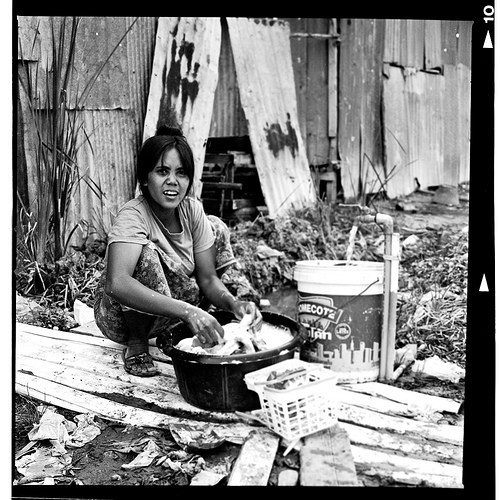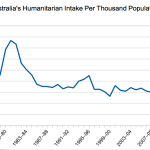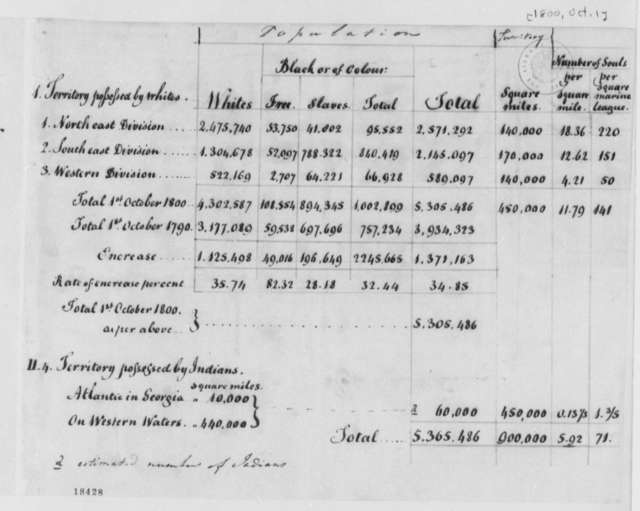Villawood Protests

What is a “protest”? In the context of democracy we think of them as citizen action – citizens speaking to their government – expressing their dissatisfaction with a policy or state of affairs.
What then are we to make of the actions of a few non-citizens protesting on the roof of the Villawood detention centre in Sydney Australia? The protest started with the leap to his death of Josevata Rauluni 36 from the same roof on 20 September 2010 – who did not wish to be deported. A needless tragedy – for what harm could have come to Australia to extend to this man the hand of welcome? On our figures Josevata Rauluni becomes about the 923rd person to die in connection with Australian border controls since 2000.
Josevata’s death, ironically, evokes a profoundly Australian folk story in its resistance to authority. Long proposed as an alternative national anthem, Waltzing Matilda tells the story of a bushman outside the law who steals a sheep for his dinner. When the police came to apprehend him he jumped into a “billabong” a river: You’ll never take me alive says he.
In subsequent days Villawood has seen first Sri Lankan asylum seekers, and then what the government describe as “Chinese who have overstayed their visas” taking to the roof to register their disapproval of treatment accorded to them by the Australian authorities.
This is something that Australian society has not been able to ignore. A topic evoking profound rejection by mainstream media (“how dare they … is this the kind of people we want”) yet that small band of protesters behind the wire are echoed by a small band of Australian supporters outside detention. Beyond them is a great disquiet at what is happening in a land where migrant and refugee prisons now dot the country (such prisons we might note now dot the world).
Underneath the surface protest however something profound is happening. Here is the assertion of political community. These individuals who assert a right to remain do not do so as foreigners – they do so as equal human beings asserting their rights. Rights imply responsibilities. Rights imply belonging. It is a conversation as insiders. Implicitly they say ‘we don’t accept your characterisation of us as beyond the right and entitlements’. ‘We reject your view that labels us as foreigners’. When does this ‘political community’ arise – or was it always there – and we just never noticed?





